The ClonePix® 2 Mammalian Colony Picker from Molecular Devices is an automated system for choosing high-value clones for cell line development and antibody discovery. It is possible to screen more clones in less time with monoclonal verification on day zero, and then screen and determine the highest producers in weeks.
Hybridomas, stem cells, CHO cells, and others are imaged and chosen based on user-defined parameters. Barcode reading, plate handling, and picking are completely combined, and all data, such as images, are saved for downstream analysis. The picker raises the likelihood of determining optimally produced cell lines and considerably decreases labor and time.
Automate antibody discovery and cell line development workflows
ClonePix 2 picker is 10 times quicker compared to time-consuming limiting dilution and FACS. The advanced software and combined robotics allow a screening speed of >10,000 clones daily.
Select cells with desirable attributes with monoclonality assurance from day 0
It is possible to screen easily and choose clones depending on protein productivity, cell viability, antigen-specificity, and expression levels of tagged recombinant proteins.
Increase the probability of identifying high-value clones while eliminating or recovering unstable clones early
Picking accuracy <1 mm. Robotic picking decreases the risk of colony disturbance. Images of picked clones have been stored with data.
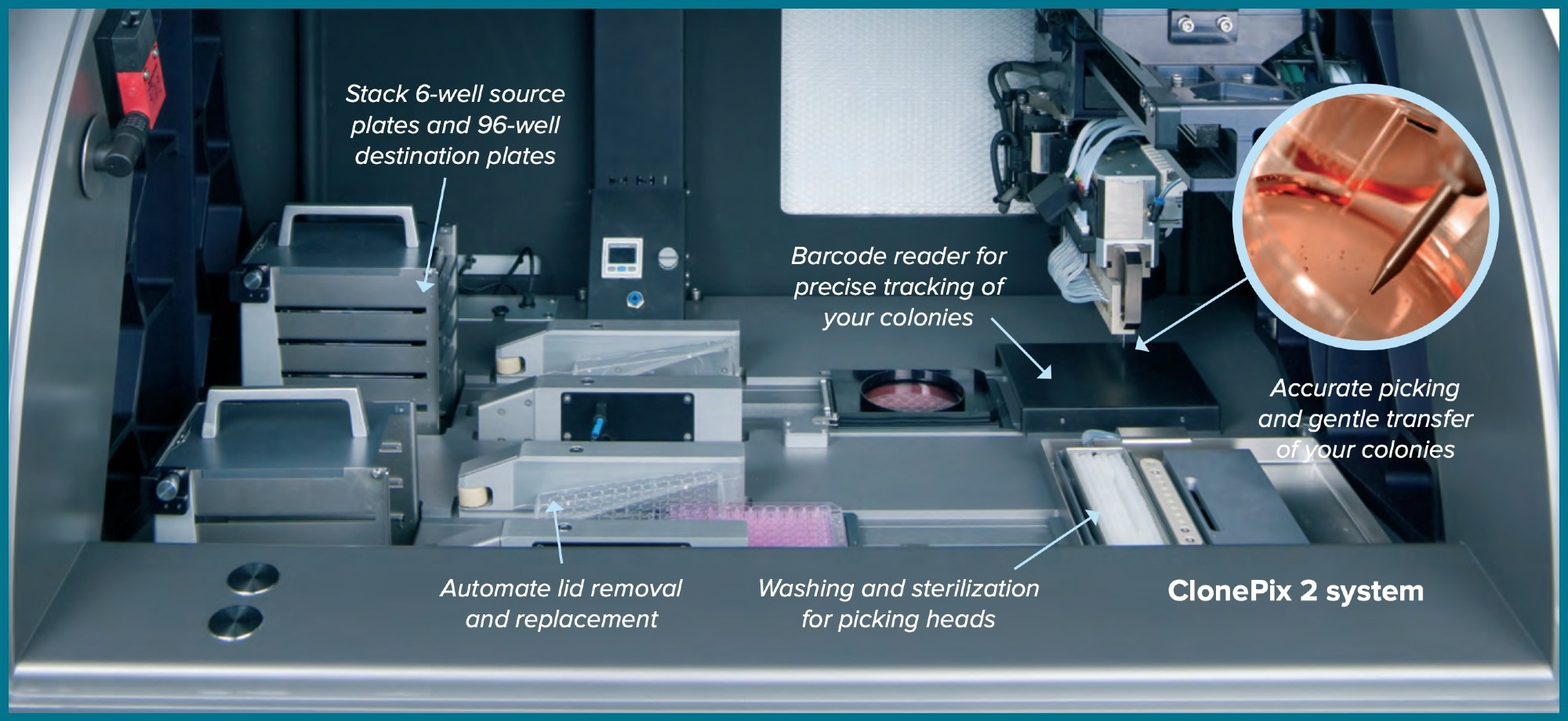
Image Credit: Molecular Devices UK Ltd
Features
Multiple detection methods
Clone morphology, size, and proximity have been determined and quantified by white light. Fluorescence denotes expression level and specificity. Up to five fluorescent filters come with multiplexing.
Integrated plate storage
Comes with two storage stacks available for source and destination plates, each having a capacity of 10 plates.
Animal-free media and reagents
CloneMedia cell-culture media is chemically defined and animal-free, and has been optimized to increase productivity and help in envisioning secreted antibodies while being utilized with the CloneDetect™ detection agent.
Sterility maintenance
A host of sterility features and options, such as a UV light process for sanitizing the instrument’s interior, as well as halogen drying and pin washing, are standard.
Discrete colony formation
Semi-solid CloneMedia™ promotes single cells to grow into discreet colonies and enables simple plating. The media enables a greater density of clones to be screened.
Custom automation options
The Advanced Workflow Engineering Solutions Team could tailor the monoclonality system and provide added services, such as combined verification of monoclonality.
Redefine clone screening and selection with transformative cell line development workflows
Authorize users’ team with data analysis that automatically produces a map of clones and their secretion levels from a range of images generated in situ. The ClonePix could be tailored to include image-based monoclonality assurance on day zero.
The team can screen in one round and pick the highest producers in weeks.
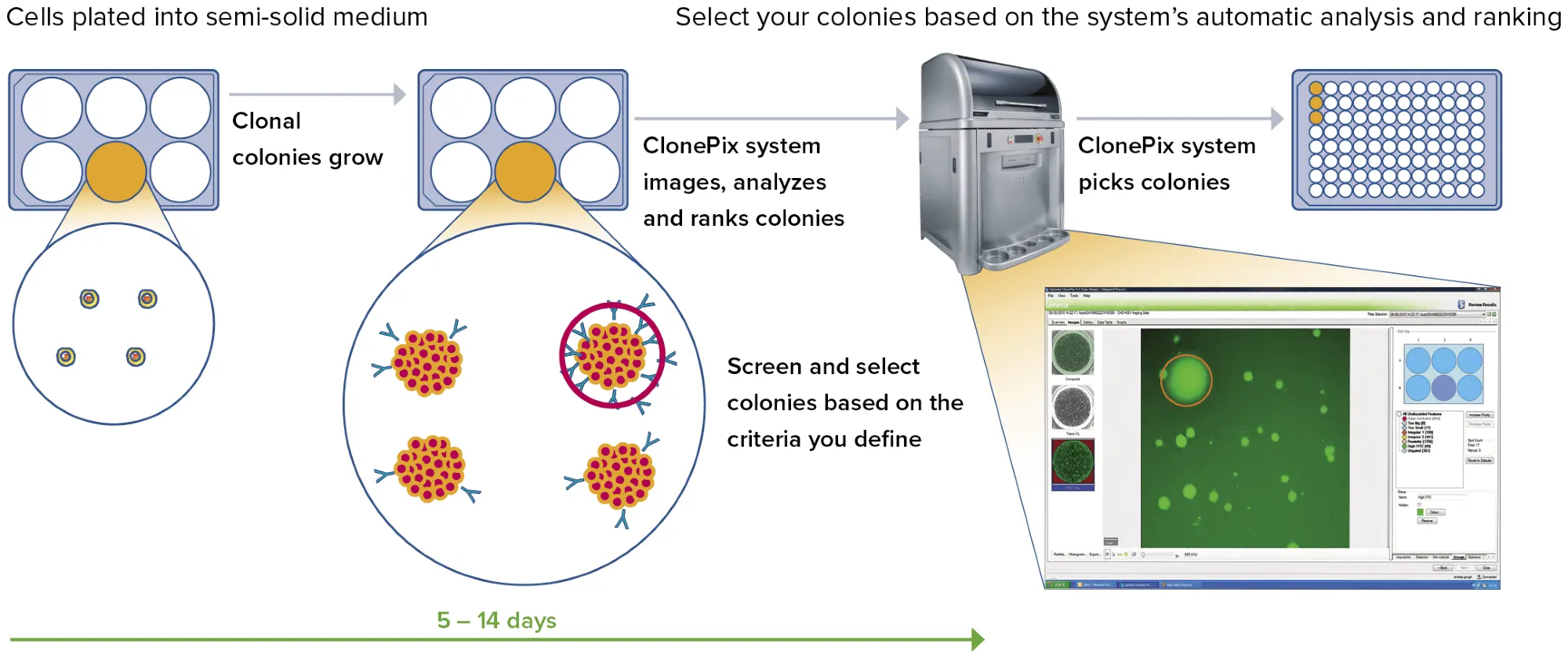
Image Credit: Molecular Devices UK Ltd
Data analysis and tracking—reveal stable clones faster
Data analysis
- Automatically produce a 2D map of clones and their secretion levels from a range of images generated in situ
- Screen and choose colonies based on:
- Ranking as per the fluorescence levels
- Size, roundness, and vicinity to neighbors
- Closely placed colonies neglected through user-controlled “proximity” software setting
Data tracking
All applicable data linked to each colony (such as images taken before and following picking together with their picking coordinates) are saved automatically for review and downstream analysis.
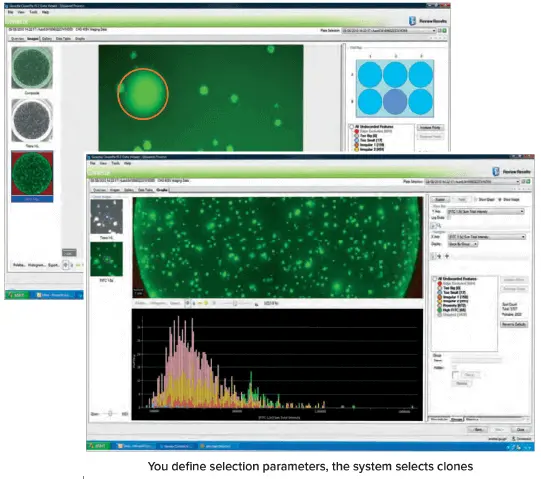
Image Credit: Molecular Devices UK Ltd
Enhanced with monoclonality assurance
Same ClonePix workflow, currently improved with high-resolution single-cell imaging capability on day 0.
The improved ClonePix 2 system could automatically screen and pick clones that are both high producing and monoclonal—all in a single system. It is possible to screen more clones in less time with monoclonal verification on day zero.
- Decrease screening time from two rounds to one by offering image-based evidence of clonality
- Quick Z-stack acquisition feature enables detection of single cells across the medium volume, not just a single focal plane, on day 0
- Simplified workflow from single-cell identification and productivity screening with the all-in-one system
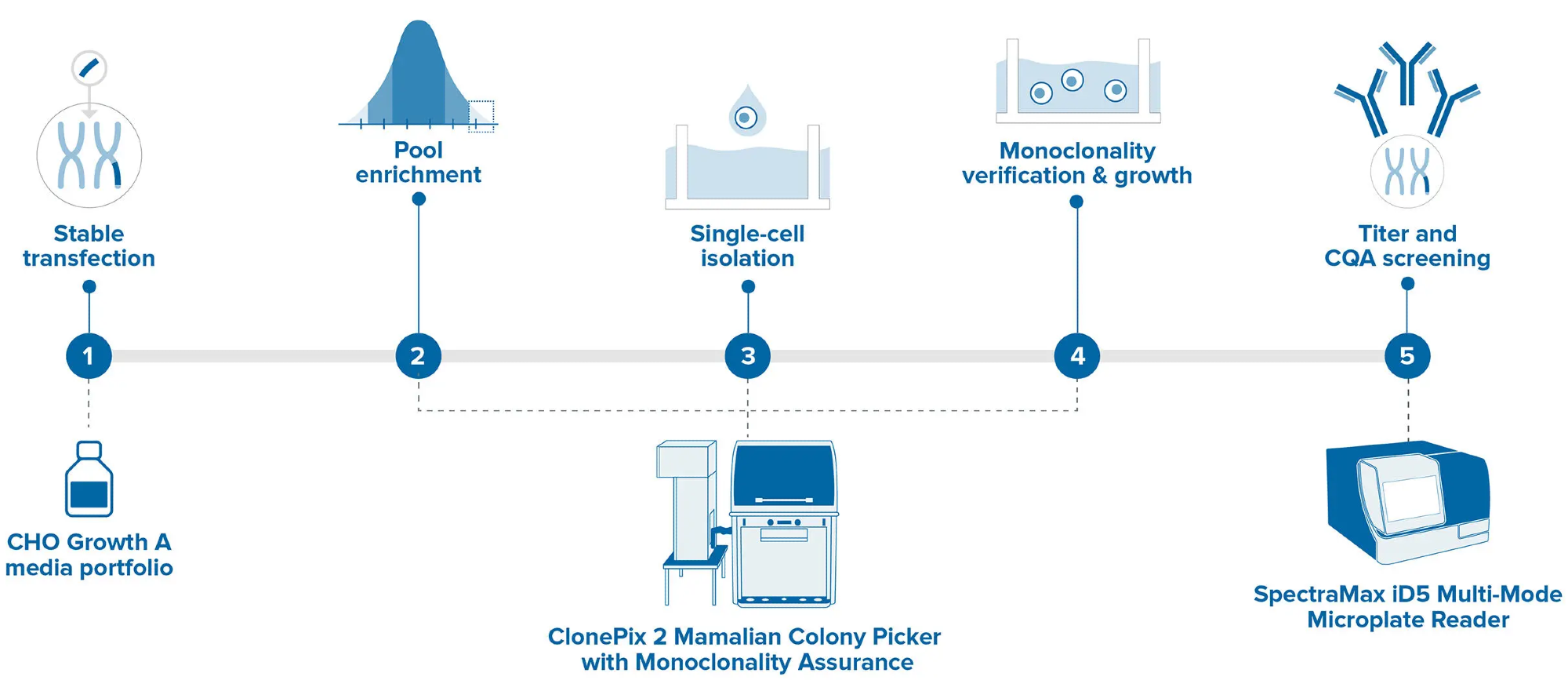
Image Credit: Molecular Devices UK Ltd
Enhanced for stem cell applications
Identify desirable, clonal stem cell colonies for high-throughput colony screening and picking
High-resolution imaging determines suitable, clonal stem cell colonies available for high-throughput colony screening and picking. Specialized picking pins enable the subtle transfer of adherent, feeder-free cells to high-density plates available for clonal expansion and downstream analysis.
- Colony formation - Separate stem cells plated at a low density in 6-well plates split and develop into colonies. Plating density is maintained low to guarantee that colonies have been derived from a single-parent cell.
- Cell growth - Cell growth has been identified by tracking cell division over a given time with the help of label-free imaging.
- Clone screening - Clonally derived stem cell colonies are determined by their preferable morphological characteristics and are picked from the low-density 6-well plates into higher density 96-well plates to go ahead with the screening. It is possible to tailor the ClonePix® 2 Mammalian Colony Picker with high-resolution optics and stem cell-specific pins, thereby enabling this established technology to be leveraged in stem cell workflows.
- Functional screening - Besides tracking growth, functional cell-based assays could be executed. This can include assays evaluating pluripotency, differentiation potential, the potential to develop 3D organoids, and other desirable traits.
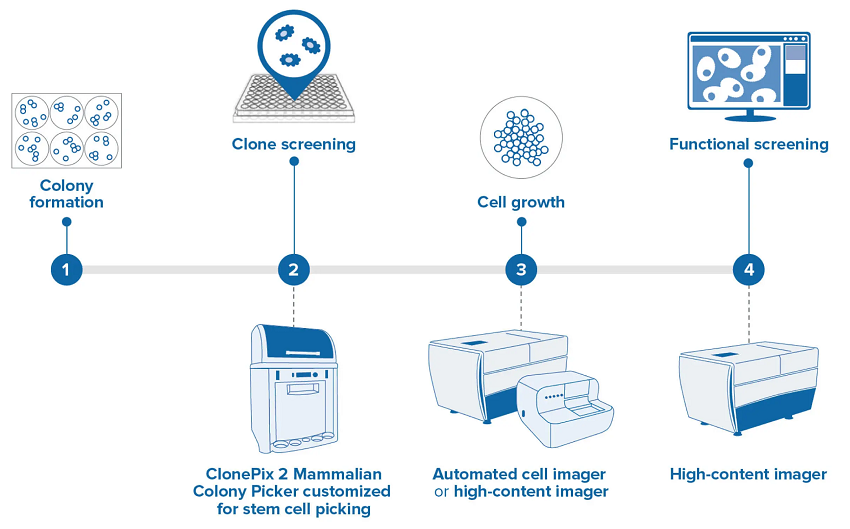
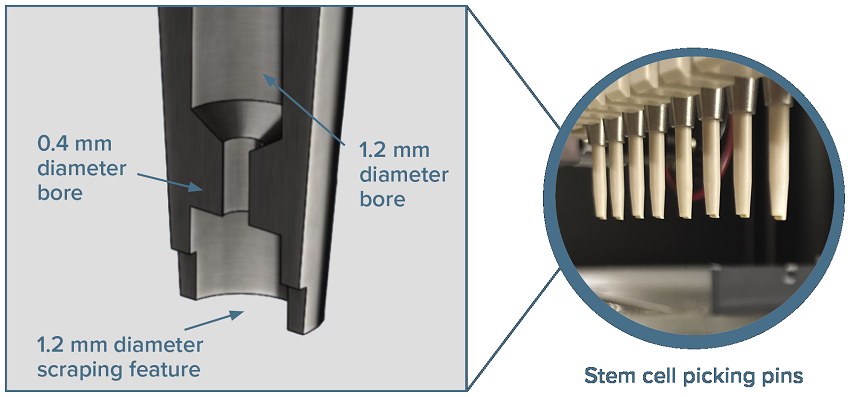
Image Credit: Molecular Devices UK Ltd